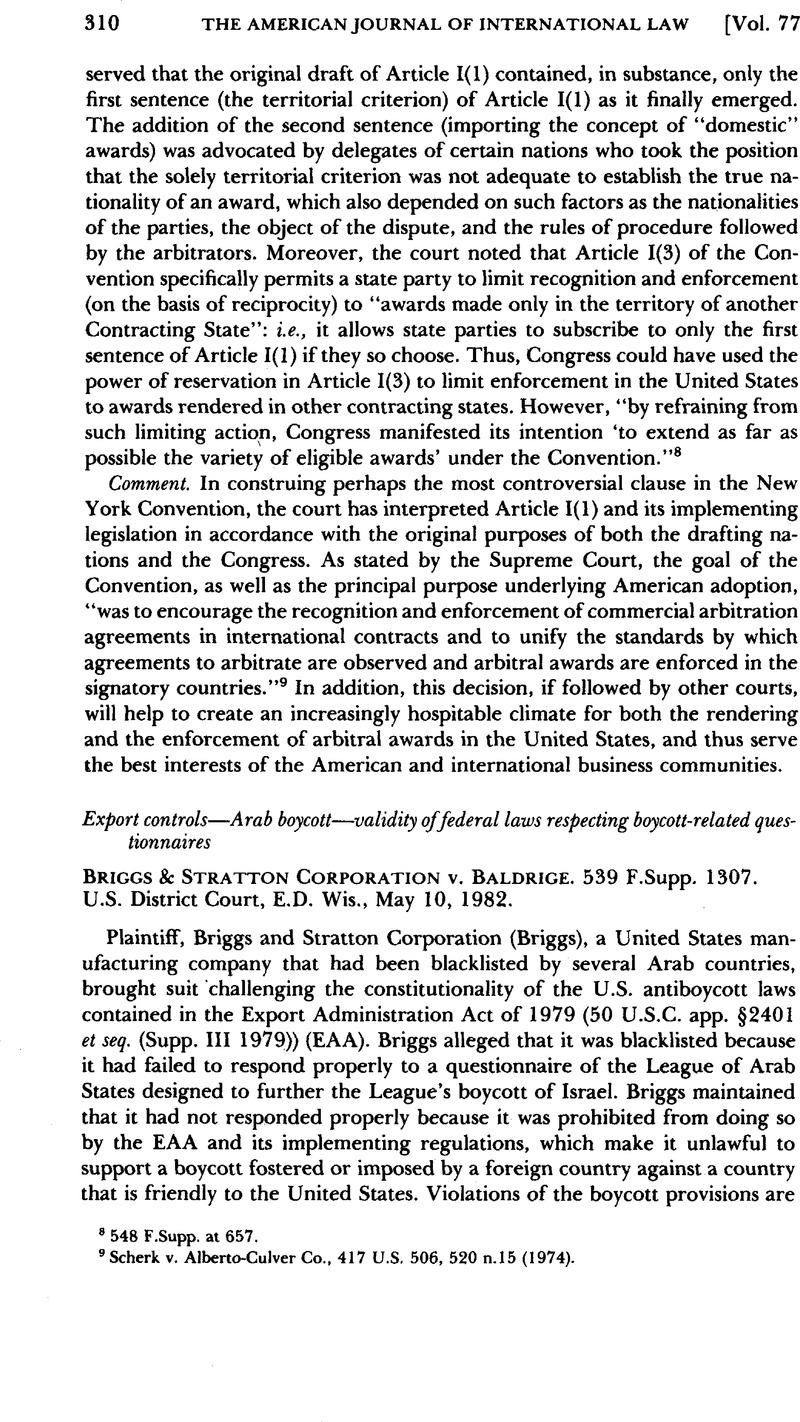No CrossRef data available.
Published online by Cambridge University Press: 27 February 2017

1 50 U.S.C. app. §2410 (Supp. III 1979).
2 Id., §2407(a)(1).
3 15 C.F.R. §369.1(e)(2).
4 Id., §369.1(e)(4).
5 Id., §369.1(e)(5).
6 50 U.S.C. app. §2402(5)(B).
7 539 F.Supp. 1307, 1319.
8 Id. at 1320. In reaching this conclusion, the court relied upon the Supreme Court’s analysis in Andrus v. Allard, 444 U.S. 51 (1979). In Andrus, the Court had reasoned that a loss of future profits, without any physical property restraint, is a slim basis for a taking claim.
Plaintiff also asserted that, should the court rule against its Fifth Amendment claim, “Briggs’ right to pursue its trade and profit from it is worthy of ninth amendment protection.” 539 F.Supp. at 1317. The court found no merit to this “barebones assertion.” Ibid.
9 Magic Chef, Inc. v. Baldrige, No. C82–653A (N.D. Ga. filed Mar. 30, 1982); Trane Co. v. Baldrige, No. 78 C 413 (D. Del. filed Sept. 5, 1978); Monsanto Co. v. Baldrige, No. 82-134-A (S.D. Iowa filed Mar. 1, 1982); Lone Star Steel Co. v. Baldrige, No. 832-0337H (N.D. Tex. filed Mar. 5, 1982); R.J. Reynolds, Inc. v. Baldrige, No. 82–242 (D. Del. filed May 14, 1982).